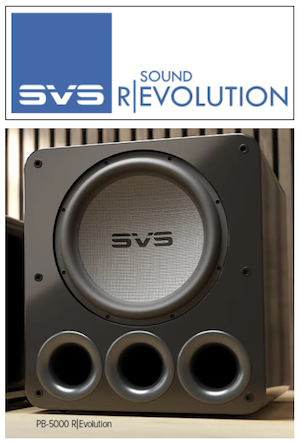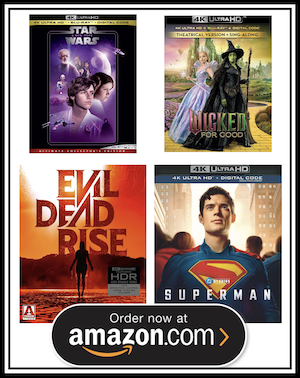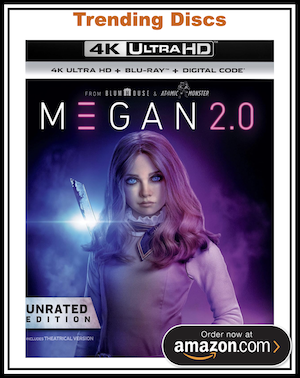(May 19, 2021) Last month, YouTuber GoldenSound published a scathing assessment of MQA's legitimacy as a studio-quality lossless codec. His video – I Published Music on TIDAL to Test MQA - MQA Review – has collected more than 219,000 views and become a focal point of discussions on audio forums across the net. The video and its blog-style summary posted on several different forums are presented as measured proof that MQA isn't what it claims to be.
At the risk of oversimplifying the creator's methods and conclusions, GoldenSound essentially placed test files (such as an impulse response, white noise, a -60dB dynamic range test sine, etc.) within a basic acoustic track, encoded it using an automatic MQA encoder, and uploaded it to TIDAL. The intent was to compare a test track to a master file, drawing conclusions through a direct 1-to-1 analysis. Results found significant differences, raising serious questions about MQA's techniques and claims, ultimately concluding that MQA is duping consumers.
Click here to watch GoldenSound's full video.
This isn't the first time MQA has taken heat, and it likely won't be last. Discussions involving the company and its technology are complex, well documented, typically far from flattering, and endlessly controversial. Detractors claim MQA is a solution for a non-problem, lossy in nature, and incapable of definitively "sounding better" than other codecs. Additionally, there's a cloud of suspicion that MQA is a digital rights management-like profiteering platform. On the other hand, supporters claim MQA files sound better, and are unabashedly impressed by the technology's advanced billing – they're willing to hold hands with the tech and take a leap of faith. Of course, both camps likely comprise a sliver of music fans worldwide; most are primarily concerned with portability and convenience.
MQA is unapologetically protective of its intellectual property. For those of you wanting the company to pull back the curtain and reveal all, that's likely never going to happen. IP is IP, and MQA isn't interested in revealing the exact ingredients of its secret sauce. From MQA's point of view, its legitimacy and technical approach has been adequately established through white papers and articles in peer-reviewed journals. And the company is quick to tout its approval by the Recording Industry Association of America, support from major labels and top-flight mastering houses, and creator Bob Stuart's legacy of innovation and industry recognition.
Soon after GoldenSound's video went live, I contacted a colleague at a well-known industry manufacturer, looking to gain some insight from that company's team of product engineers. My hope was to lean on wiser eyes and receive an off-the-record analysis backed by experience in the segment. The manufacturer ultimately responded with a friendly pass – which is completely understandable – but it did lead to a healthy dialog with MQA, which was more than happy to chat. I ultimately asked MQA for a plain-speak evaluation of GoldenSound's conclusions and a detailed explanation of how GoldenSound's test track differs from content like techno and electronica.
MQA supplied its response several weeks ago and is currently planning to release much (if not all) of the response through its own media channel. While on par with its published correspondence with GoldenSound prior to his video's launch, I've decided to summarize the company's stance. What you, the reader, do with this information is entirely up to you. It certainly raises serious questions about GoldenSound's methods and results. However, it doesn't provide any sort of proposal as to how independent analyses of the technology can be performed.
At the most basic level, MQA says GoldenSound's methods were biased and designed to discredit the company and Bob Stuart (MQA's creator), making any conclusions tainted. "We welcome honest and healthy debate," stated MQA. "However, we will not enter into discussion with those shown to be part of the toxic trolling of [our] team and technology."
MQA also says GoldenSound falsely portrayed the company's reaction to his test tracks on TIDAL. GoldenSound claims that MQA deleted his uploaded content from TIDAL; however, MQA says that's not the case. "MQA is neither a music copyright holder nor a distributor," the company explained. "We have no rights to remove content from a service, nor do we have access to the audio. Music is delivered to streaming services by the rights-holders (labels and artists), and the supply chain is either direct or via a distributor or aggregator, in accordance with their agreements."
The company adds that GoldenSound falsely suggests that his content was forcibly published in MQA. "The YouTuber noted that his content was only made available in TIDAL Masters in MQA, suggesting that we had suppressed the 44/16b Redbook version from the HiFi tier. As stated above, MQA has absolutely no role in managing the music within a service."
Beyond those targeted responses, the bulk of MQA's plain speak rebuttal suggests that GoldenSound's tests were "fundamentally flawed," leading to conclusions that are "entirely off the mark." The company confirmed that GoldenSound shared his results prior to publishing his video, but says he failed to accept or act upon its response. "Despite providing him with detailed clarifications to each of his allegations in advance of publishing, he decided to proceed with his inaccurate and defamatory video."
Click here to read MQA's original, full response sent to GoldenSound.
According to MQA, GoldenSound's approach was doomed to fail because it didn't fulfill basic requirements. "The YouTuber ignored our guidance around a central flaw in his test, which is the fact that the encoder he used is designed for musical content and will, by design, fail when attempting to feed it test signals."
GoldenSound's use of non-musical content, says MQA, directly contributed to issues on the output end. "The encoder he had access to runs in an automatic mode and depends on the individual to confirm satisfaction with the resulting audio file. By feeding this particular encoder with a mixture of music and test signals, the encoder detected overloads, technical errors, unusual noise in the recordings, and issued numerous warnings and error messages. The encoder knows when it is being driven outside of its performance envelope, and he disregarded the warnings. Ironically, the only accurate result from his flawed test is a confirmation that our tool behaved precisely as it was designed to when being used incorrectly."
MQA says the automatic encoder objected to 11 of the 14 files GoldenSound submitted, with the remaining three files receiving the following warnings in log returns:
- Audio invalid ‐ Excessive alias
- Audio invalid ‐ Input audio is predominantly 16 bits while file container is 24 bits Input audio appears to have been wrapped
- Input audio contains a band edge
- Encode may not have worked as desired and may require further QC
After digesting MQA's plain speak response, I asked the company to explain how GoldenSound's use of test signals differs from techno or electronica (music that can sound like it has test signals). Bob Stuart replied with a five-page technical explanation, beginning with a dissection of GoldenSound's audio file and reiterating that MQA's automatic encoder is designed for music content. Stuart says GoldenSound's file (as posted on his download link) features test signals that were "interleaved" with music segments and "included to 'trick' the encoder into treating it as music." He continued by explaining the file's signal was out of gamut in several places, contained significant "washboard" distortion, and its segment's noise floors alternated between 24, 22, 12, and 6-bit levels.
Stuart says spectral levels of music (including techno, rock, pop, jazz, metal, and classical genres) mimic each other, with the bulk of energy appearing below 12kHz, quickly tapering off after that. In other words, lower frequencies are higher in level than high frequencies, and this holds true independent of genre.
Stuart also asserts that individual music recordings have a unique peak spectrum and noise floor, which can be identified and enclosed within a triangle on a diagram that plots decibels versus linear frequency. MQA uses these principles to identify musical information, encoding it with a very high level of precision. "The benefit of the MQA approach is we can use a novel sampling method with much lower temporal smearing that matches the actual signal character."
GoldenSound's tracks, according to Stuart, failed to approximate real-world music's spectral levels, nor did they have a consistent noise floor. The 44.1 kHz composite file contains "very high levels that, at 22 kHz, exceed music content by 30dB." The 88.2 kHz composite file is more problematic, exceeding musical content by 50dB at 44 kHz and 60dB in the ultrasonics. Stuart continued by saying the bulk of its power resides dangerously above 20 kHz. "Such extreme ultrasonic energy would readily damage tweeters or amplifiers," explained Stuart. "Professional mastering engineers are extremely careful to avoid any high-frequency whistle or interference above 20 kHz."
Long story short, Stuart maintains that GoldenSound's files contained unsafe ultrasonic signals that were identified and flagged with error messages. GoldenSound, he says, ignored these errors, which "simply does not happen in the normal professional supply chain where the MQA encoder analysis is monitored and highly valued [as an] forensic quality assurance check." The result essentially approximates a garbage-in/garbage-out scenario. Stuart says the files could have been encoded as MQA using a 'white glove' encoder.
Stuart's response, of course, includes quite a few complexities that are difficult to generalize. I'm told it will be released on his blog, Bob Talks, soon.
Taking MQA's explanation at face value, many of the issues revealed by GoldenSound result directly from content that failed to satisfy basic principles expected by MQA's automatic encoding technology. Assuming this is true, a scientific approach suggests that GoldenSound's tests need to be repeated with files that fit within MQA's encoding parameters.
Objectively speaking, MQA is currently a market option that consumers can circumvent by sourcing music from alternative services. This doesn't help enthusiasts who want to use TIDAL while avoiding MQA, nor does it satisfy detractors that fear MQA is actively inserting itself as an alternative form of digital rights management. The solution appears to be an open-source or standardized approach, which hardly seems viable given MQA's interest in protecting its proprietary technology. Of course, fans of MQA encoded tracks are free to continue enjoying their music – when it comes to audio, perceptual happiness is the ultimate judge.
Last edited:













